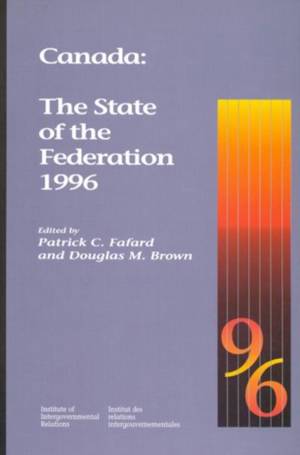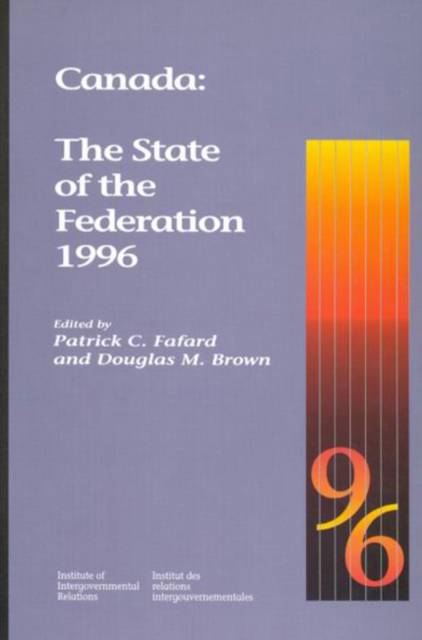
- Afhalen na 1 uur in een winkel met voorraad
- Gratis thuislevering in België vanaf € 30
- Ruim aanbod met 7 miljoen producten
- Afhalen na 1 uur in een winkel met voorraad
- Gratis thuislevering in België vanaf € 30
- Ruim aanbod met 7 miljoen producten
Zoeken
€ 48,45
+ 96 punten
Omschrijving
Focusing on the aftermath of the 1995 Quebec referendum on sovereignty, Marc Desjardins (McGill/Government of Canada) evaluates the first six months of Lucien Bouchard's tenure as premier of Quebec, John Trent (Ottawa) provides a useful guide to the myriad of citizen groups that have sprung up since the referendum, and Douglas Brown (New South Wales) outlines how scholars outside Quebec have begun to think seriously about the unthinkable - a vote in favour of sovereignty in a future referendum. Examining the ongoing management of the Canadian federation, François Rocher (Carleton) and Christian Rouillard (Carleton) challenge the view that Canada is among the most decentralized federations in the world, Herman Bakvis (Dalhousie) analyses federal proposals to devolve labour market development to the provinces, Daniel Cohn (Carleton) assesses the final version of the Canada Health and Social Transfer, Robert Williams (Waterloo) surveys intergovernmental relations on cultural policy, Christopher McKee (UBC) provides a detailed analysis of the treaty-making process in British Columbia, and Patrick Fafard (Queen's) examines the overall state of the federation, likening it to a game of multidimensional chess. As always, the volume includes a chronology of events from July 1995 to June 1996, providing a useful reference to significant developments in Canadian federalism and intergovernmental relations.
Specificaties
Betrokkenen
- Auteur(s):
- Uitgeverij:
Inhoud
- Aantal bladzijden:
- 276
- Taal:
- Engels
- Reeks:
- Reeksnummer:
- nr. 29
Eigenschappen
- Productcode (EAN):
- 9780889115873
- Verschijningsdatum:
- 28/05/1997
- Uitvoering:
- Paperback
- Formaat:
- Trade paperback (VS)
- Afmetingen:
- 154 mm x 229 mm
- Gewicht:
- 453 g

Alleen bij Standaard Boekhandel
+ 96 punten op je klantenkaart van Standaard Boekhandel
Beoordelingen
We publiceren alleen reviews die voldoen aan de voorwaarden voor reviews. Bekijk onze voorwaarden voor reviews.











